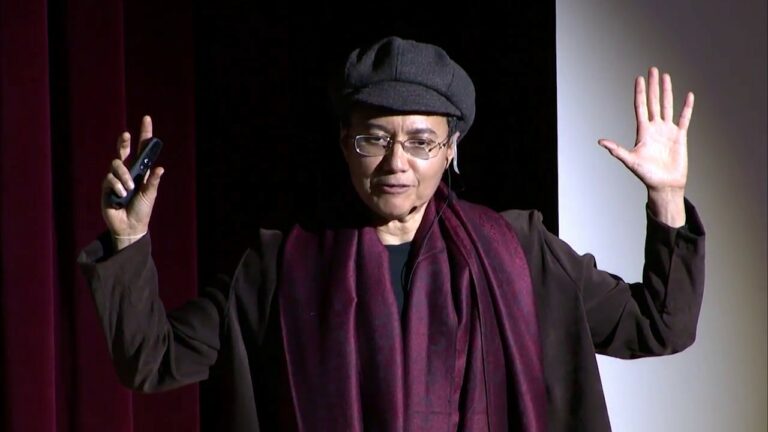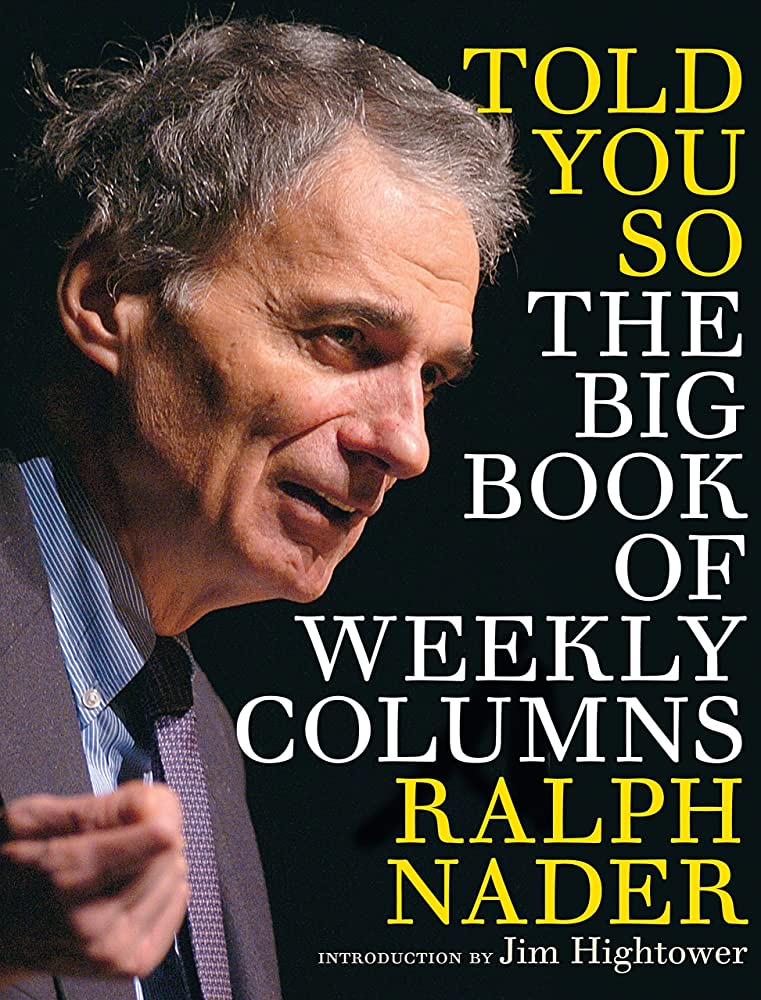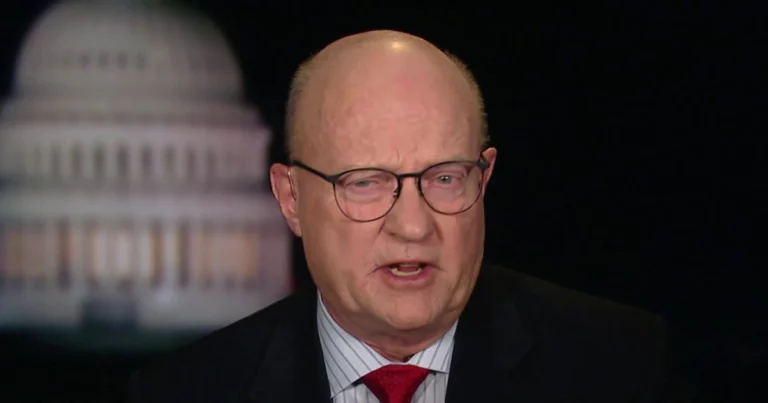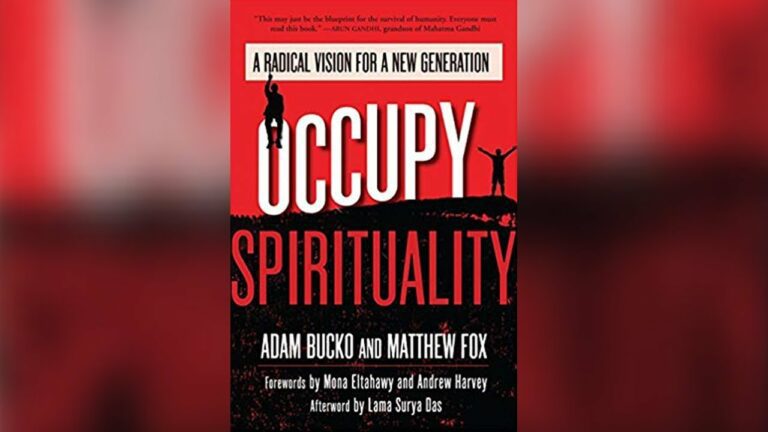This is an episode of Reality Asserts Itself, produced on January 19, 2017. On Reality Asserts Itself, Nina Turner, leading Bernie Sanders surrogate during the primary, tells host Paul Jay that Democrats and progressives need to stand up and challenge establishment Democrats in the primaries all across the country. “Either you’re with the people, or you’re not.”
NINA TURNER: We may not have gotten here on the same ship but we are in the same boat right now. We have been here before. And I know that you might be disappointed but I want you to take solace in these words: ”We must accept finite disappointment but must never lose infinite hope.” The valley may be lower, but we’ve been here before. The mountain might be higher, but we’ve been here before. Because our mission for social justice and economic justice and political justice and, oh, by the way, sisters, we want our whole damn dollar. Say: “Whole damn dollar!” You see the mission is so high we can’t get over it. And the mission is so low, we can’t get under it. And the mission is so wide, we can’t get around it. We might be disappointed but we have been here before. And as sure as there is a God in Heaven, He is stronger and more powerful than any man. We cannot forget where we have come from. Sisters and brothers, I want to leave you with these three things: No. 1, the creator of this great universe has given us two hands. One to reach forward and one to reach back, lifting as we climb. No. 2, and most importantly, we can’t ask other folks to do more for us than we are willing to do for ourselves. And lastly, in the words of my grandmother who was hailed from the South, born in 1913, Grandma could not read or write but she could count her money. And she kept her money in the southern lady’s bank and trust with a handkerchief. When I asked grandma what it takes to be successful in life, she said all you need are the three bones: the wishbone, the jawbone, and the backbone. She said the wishbone will keep you hoping and praying because hope is the motivator, but the dream is the driver. The jawbone will give you courage to speak truth to power, but the most important bone of them all, the supercalifragilisticexpialidocious bone is the backbone because the backbone will keep us standing through your trials and tribulations. And guess what, sisters and brothers? We can’t have a testimony without a test, and we are being tested right now for whether we have courage enough, hope enough, fight enough, love enough to do what is necessary. Hallelujah, somebody.
PAUL JAY: Welcome back to Reality Asserts Itself on The Real News Network. I’m Paul Jay, and we’re continuing our discussion with Nina Turner. Nina is a former Ohio State Senator and college professor, public speaker and all kinds of things. But most importantly, recently she was maybe the most prominent surrogate for Bernie Sanders during the Democratic Party Primary, and has emerged as one of the leading voices of the Sanders movement as it continues and just sort of figures out what it’s doing next. She’s on the board of Our Revolution, an organization that was set up, or initiated, by Bernie Sanders — he’s no longer directly involved, or at least he’s not supposed to be. Anyway, joining us in the studio is Nina Turner. Thanks for joining us again.
NINA TURNER: Thank you, Paul.
PAUL JAY: We ended the last segment where you talked about you still hoped the Democratic Party can be the party of the working people.
NINA TURNER: Yes.
PAUL JAY: I’ve always thought of the Democratic Party as sort of this united front between financial elites, the political class, the politicians that run, and urban workers and professionals and the trade unions — a sort of class alliance, if you want, between sections of finance and the working class, generally urban, represented by unions.
NINA TURNER: Mm-hmm.
PAUL JAY: But certainly… I mean, I would say for the whole time, but increasingly, the unions have had less and less power in the Democratic Party, and since Bill Clinton almost none. But I sat with a leading international president of one of the big international unions, and in D.C., we were having lunch and his political advisor was there. And I said to them, this was early Obama days, but it was clear that after promising this Employee Free Choice Act, which was going to make it easier to organize unions, it was clear that Obama wasn’t going to put it on the agenda, and the legislative leaders, the Democratic Party, weren’t going to put it forward — even though in the first two years they controlled both Houses of Congress.
NINA TURNER: Okay. Right.
PAUL JAY: And I said, “I don’t understand. Why don’t you guys, you know, walk out? You’re a union. Why do you cede power to finance, and the financial sector, and those elites in the Democratic Party? It’s like, without any reservation. And the thing they promised you, you’re not getting.” And the answer was because they had the dough to beat the Republicans. “When it comes time in elections, we need this financial elite, and without them we can’t beat the Republicans.” And I said, “Well, what’s the point of beating them if you end up getting the same thing anyway?”
NINA TURNER: That’s right. Republican lite.
PAUL JAY: Yeah.
NINA TURNER: Democrats.
PAUL JAY: But it’s so… when you talk about the Democratic Party becoming the party of working people, you’re really talking about a massive split in the party, because this financial elite that controls the DNC and controls the machinery at almost every level of government in America, they ain’t giving it up to become the party of the working men when there’s a party of the financial elites and the political class that suckles off them.
NINA TURNER: Well, Frederick Douglass moment, if I may — power concedes nothing without a struggle.
NINA TURNER: Well, Frederick Douglass moment, if I may — you know, power concedes nothing without a struggle. It never has and it never will. And so even though I believe that the Democratic Party, the principles — I mean, what came out of that platform committee — there is no doubt that it is the most progressive platform. But just speaking those words alone without an action proposition really means nothing, and so that’s where the challenge to establishment and financial elites within the Democratic Party comes into play. And that is why we need the Berniecrats and other conscious-minded folks, to push the Democratic Party, because it — just like the Republican Party or any other system or structure — will not change without the masses of people, the grassroots, demanding that change. And that’s what we need. And that’s what we see happening right now. If the Democratic Party is unwilling to start to connect with the needs of the coalition of the forgotten we will be a fractured party moving forward, and since 2010 to now we have been bleeding legislative offices across the country — governors’ mansions, state-wide offices, and members in Congress. So, if we are not fully awake now, and plan to do something about it, i.e., speak up for working class, i.e., be willing to lose something for the working class, i.e., speaking that truth to power and then acting on it. As you say, why didn’t Democrats do all of these things when we had both Houses in Congress and the presidency? We are going to have to start to do something for people. They’re tired of it.
PAUL JAY: Then what you’re talking about is a war with the financial elites that have controlled the Democratic Party and the politicians that represent them. And it’s a complicated situation, in the sense that there’s going to be tremendous pressure on Bernie and Sanders’ supporters in the Democratic Party, not to really wage war with corporate Democrats because we’ve all got to push back against Trump, will be the argument. On the other hand, then you end up in the same situation, that the person that will emerge as the anti-Trump will be another corporate Democrat with another kind of cloak around them, but if they actually win, back in the same boat again and the next Trump that comes could be even more…
NINA TURNER: Worse.
PAUL JAY: …vicious to this one.
NINA TURNER: Yeah. It’s unacceptable. Einstein defined insanity as doing the same thing over and over again and expecting a different result. We cannot… we are fighting for our livelihood and for the heart and soul of the very people that we stand up for. When Senator Sanders says, “I want to protect and expand social security,” well, now that’s in peril right now. You know, when we talk about some of the great gains — and even though Obamacare is not perfect, it is a gain in the sense that young people can stay on their parents’ policies ’til they’re 26. If you have a condition, a pre-existing condition, insurance companies can’t discriminate against you. All of the gains that we did make of the things that Democrats had the courage to do in the first two years of President Obama’s term, is in peril now — because we don’t win elections and we’re not winning elections because we’re not connecting with the people, and we are not connecting with the people because they’re over the BS and I’m not talking about Bernie Sanders. They really want people to stand up and be willing to fight the righteous fight and to create pathways of opportunity. They’re not asking for handouts, they’re asking for a hand up. And we have to push policies that do that, and Democrats just have not been willing to do it. And so now we’ve got to pay the piper, so to speak. And 2016 was really the straw that broke the camel’s back, but if Democrats are real with ourselves, we’ve been ceding territory electorally since 2010. So you can have all the best ideas in the world, but you’ve got to have a political power to execute those ideas. And so, if we don’t win offices and seats, then we’re never going to be able to do the great things and the high-minded ideas — and if we’re not willing to do those things, people are not going to vote.
PAUL JAY: It takes cities like Baltimore or cities and states run by the Democrats — and the same happened at the federal level under Obama. When these policies of what people call neo-liberalism… I’ve actually, I never much liked that term because…
NINA TURNER: What term do you like better?
PAUL JAY: …who knows what it means. I would call it intensified capitalism, I think is a better… or hyper-capitalism.
NINA TURNER: Hyper? Yeah. I like that.
PAUL JAY: Hyper-capitalism, I think, is a better term.
NINA TURNER: Mm-hmm.
PAUL JAY: But when that’s your economic model, like for example, in Baltimore, everybody that runs for office here — almost everybody, there’s the odd exception — the model of development in Baltimore is more tax deferrals for developers, more Inner Harbor development, where you have a whack of public money goes into tourist sites, and it produces a handful of minimum wage jobs, and you have swathes of massive poverty in the city and unemployment. The idea of using the public sector and not buying into this neo-liberal hyper-capitalist idea that everything has to be done through the private sector when 60 years of doing that in Baltimore, it’s been a failure. When the Democrats are just the face of that, where you make all these promises in the election campaign, but when you govern, it’s really just a slightly bit more benign form of hyper-capitalism, it’s no wonder that it sows the seeds for a Trump kind of populist rhetoric that looks like, “I’m going to take on the big boys in all of this.” Bernie, I thought, made two big — several significant contributions that were really completely new — two of them were, one, he changed the whole funding model. You no longer have to get funded by billionaires, and you can actually compete on a national level, which no one ever thought could be done. But I thought the other thing that was critical was he used words like “oligarchy,” “billionaire class”. But kind of since he started endorsing Hillary — and even more recently when he’s almost the face of the Democratic Party right now because they’re in such disarray, he’s the only person that has any credibility to come out and talk nationally — but if that language of oligarchy and billionaire class, if that’s not in the language of the Berniecrats and, actually, in reality fight these oligarchs that are in the Democratic Party, like, when doesn’t… doesn’t that need to be kind of open, this fight?
NINA TURNER: No, it does, and he displayed that, as you know. The interview… the town hall that was in Wisconsin, I believe, he and Chris Hayes, and when he won over someone that was on the stage next to him who actually voted for Mr. Trump, who talked about, you know, “Where is the silent majority? I want to see social security protected and expanded.” You know, she named several things. And the Senator was able to connect with her. And then to say… he didn’t say to her, “You’re dumb and stupid and ridiculous for voting for Mr. Trump.” What he said to her was, “You and I agree.” He spoke to her heart, and she had to admit on that stage, “You know, what? We do agree. No, it’s not right. I don’t want social security cut.” You know, she started… That is what Democrats have to do. So I agree with you to what engendered… what made folks gravitate to Senator Bernie Sanders was his authenticity and his willingness to say words like oligarchy, his willingness to say millionaires and billionaires can’t have it all. His ability and his willingness to say, “Oh, no, we need universal healthcare in this country. We need to have a system where young people are not saddled with trillions of dollars’ worth of debt.” They graduated with a degree in one hand and debt in the other. Where is the morality? Where is the patriotism for the capital class in this country towards seeing and making sure that the United States is strong. You can’t just keep take, take, take, take, take and working class and middle class people get nothing. That is what got him, that is what won him over, and to me, it is that model — and we can add other things to it that will help the Democratic Party regain ground. What people want to see is action, Paul, that when we are elected that we take action that is in the best interests for working class people, whether a city, county, state, and then hopefully federal. That is the only way we’re going to win them back.
PAUL JAY: Doesn’t this movement — and prominent people representing this movement have to be honest about who the corporate Democrats are, which includes President Obama, which includes… and now you’re having a fight over defense of Medicare and social security. Does Chuck Schumer have a place on that stage in that fight? When you have people that are… I mean, Chuck Schumer is… it can’t get more corporate Democrat, representative of Wall Street than he. Now, it’s true, his section of the Democratic Party wouldn’t attack social security and Medicare, they would keep it more or less as it is, and, yeah, that’s better than privatizing it. It’s not that there’s no distinction there, but on the other hand, there’s a real fight against these corporate Democrats that has to be waged, and Chuck Schumer is the face of that.
NINA TURNER: But that doesn’t mean that someone like Senator Schumer — we need to have that bridge between the different factions within the Democratic Party, because I still believe it takes all of us to get it done. Again, nobody is always absolutely right, and nobody is always absolutely wrong. But because the Democrat… remember in 2012, the Republicans did an autopsy report, that they didn’t… they did the report but they never really put that report into action. The Democrats are in the same place in 2016. We need to do an autopsy, and fast, and determine what kind of party we’re going to be when we grow up moving forward — and we’re going to have to deliver, because people are over it. They are absolutely over it, and they showed that ultimately in 2016 but the build-up has been since 2010. We need to analyze who we are, what we are, why we are, and who we stand for from 2010 to this moment, and determine who we’re going to stand for moving forward. Anything less is doing a disservice to this party, the structure that is this party, and the people who ultimately we want to earn their vote and we want to serve them in the public place, the federal government, the state government — government is still the biggest way and the most impactful way that we can help to change people’s lives. Ultimately, it can’t do it alone, but it has the biggest cachet, it has the biggest footprint. So Democrats are going to have to win elections to do that.
PAUL JAY: But there’s a sort of fight developing in Democratic Party circles and around, which is, is the focus in 2018 going to be on electing Democrats or is the first focus going to be on primarying right-wing Democrats, and trying to change the character of the Democratic Party and who actually gets elected? What’s your thinking?
NINA TURNER: Any Democrat won’t do… anymore. We’re over that. And Senator Sanders certainly exposed that, that we can’t go with any Democrat — and because this is a disruption election kind of cycle that we’re in, I believe that cycle continues in 2018. So, Democrats, progressives, really do need to stand up and primary establishment Democrats all across this country. Either you’re with the people or you’re not. Either you believe in universal healthcare or you don’t. Either you’re for raising the minimum wage, or you’re not. There is no middle ground on some of these bread and butter issues that Democrats have been willing to gamble away just to win a seat. You can’t serve two masters. Either you are for the people on certain of these issues, or you are not. And the only way to shake the power tree is to make sure — Carl B. Stokes in his book, “Promises of Power,” talks about power trees — but the only way to shake it is that they have to be challenged. And there is lots of talk all across this country of grassroots folks doing that. And I hope that they do.
PAUL JAY: Okay. I’m going to pick this up in the next part. Please join us for the next part of our interview with Nina Turner on Reality Asserts Itself on The Real News Network.
Never miss another story
Subscribe to theAnalysis.news – Newsletter
“Nina Turner is an American politician and television personality. A member of the Democratic Party, she was a Cleveland City Council member from 2006 to 2008 and a member of the Ohio Senate from 2008 until 2014. Turner was the Democratic nominee for Ohio Secretary of State in 2014 but lost in the general election against incumbent Jon Husted, receiving 35.5 percent of the vote. Her politics have been variously described as progressive, left-wing, or far-left.”










